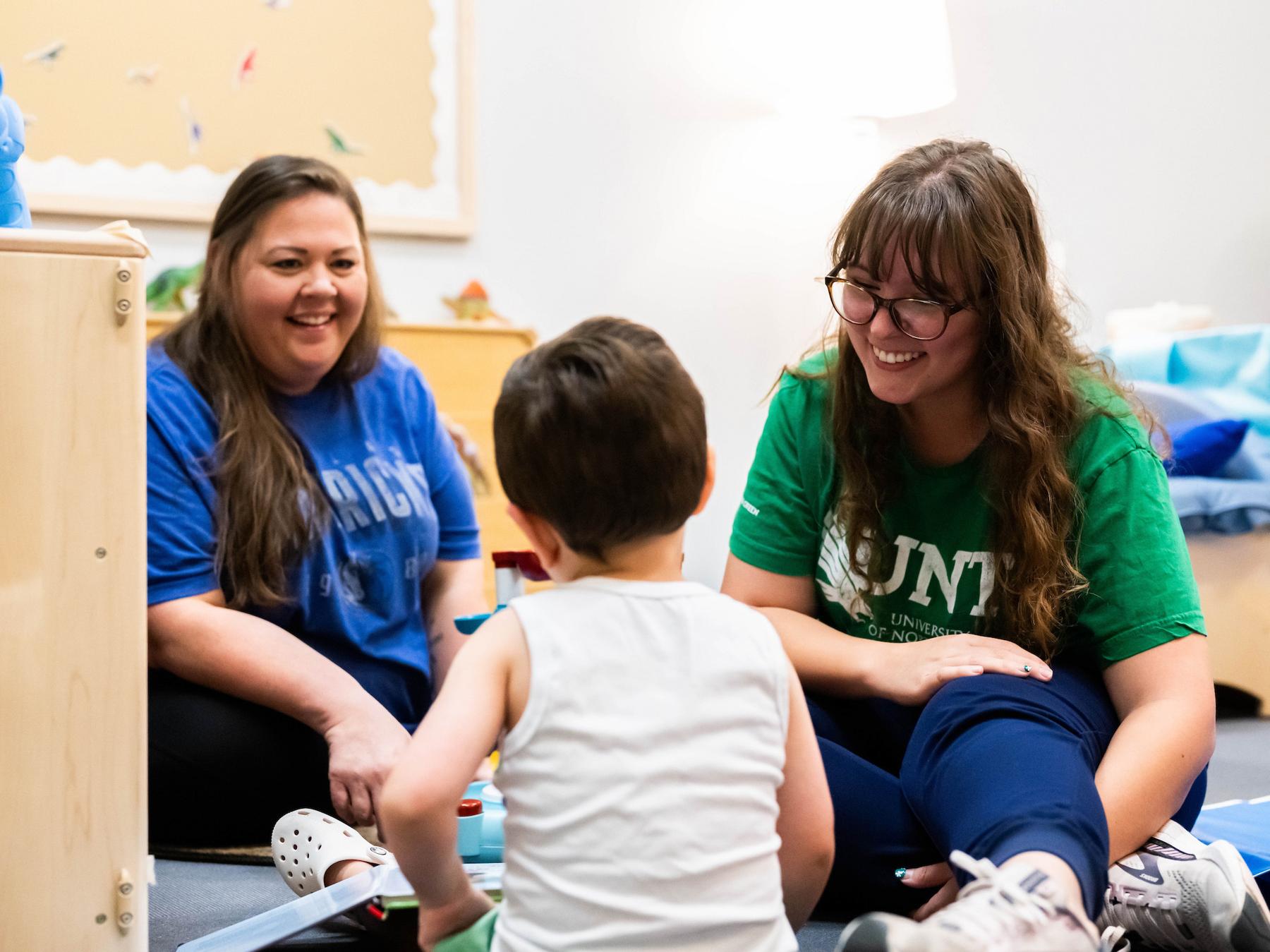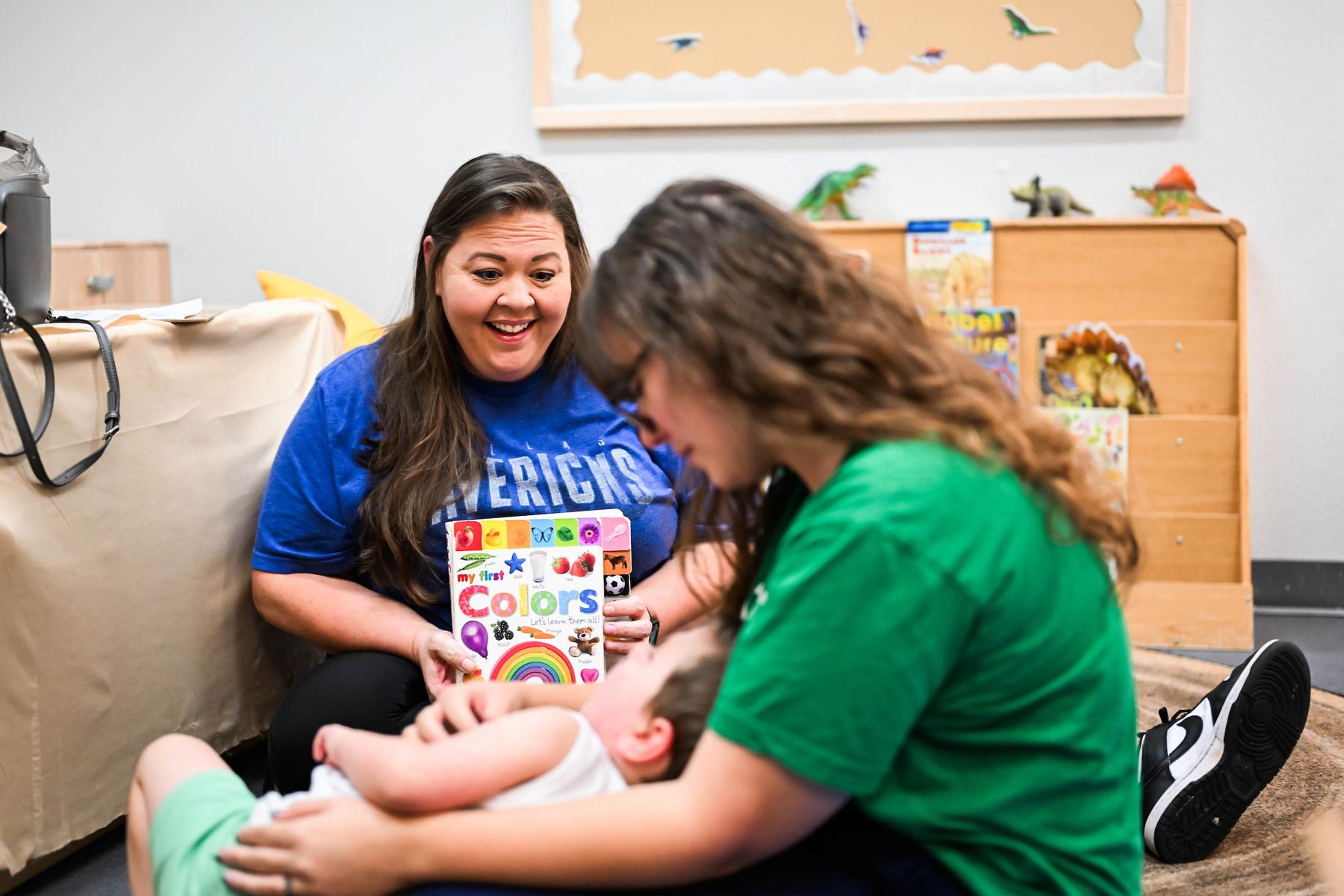
DENTON (UNT), Texas — Single mom Amber Slaughter turned to the Kristin Farmer Autism Center at the University of North Texas a year ago for help with her son who was non-verbal, only communicating through screaming or yelling.
In just a year, her son gained the skills he needed to talk and even sing songs. He also knows his alphabet and numbers, and he recognizes sea animals and dinosaurs. She speaks fondly about how her son has learned to ask for things and is working on eye-to-eye contact.
“We have seen tremendous growth in the past year,” Slaughter said. “He has learned great organizational skills, and they’ve taught him how to pretend play and play with other children.”
Slaughter’s son is just one of the 60 children the Kristin Farmer Autism Center serves every year with specialized treatment for each child’s needs. One out of every 36 children is diagnosed with autism, and about 50,000 of the 2 million children under the age of 18 living in the Dallas-Fort Worth area are diagnosed with autism – many more children remain undiagnosed, according to experts at UNT’s center.
The center has been serving the North Texas region since 2012, when it was established with a donation from UNT alumna Kristin Farmer (’95) who earned her master’s degree in Special Education. The community-facing center serves families with children ranging from toddlers to high school aged to help prepare or transition their child to traditional daycare, preschool or public school.
The center has a team of nearly 60 undergraduate and graduate-level registered applied-behavior-analyst student clinicians. For each program, there is a board-certified behavior-analyst who is responsible for supervising the UNT student clinicians. Each child’s treatment is overseen with weekly parent-training meetings to discuss skills, emotion-management and redirection techniques to help their children.
“Having the parent-training meetings every week is extremely helpful,” Slaughter said. “I’m able to learn things they do at the center so we can use those in our everyday lives. They focus on what each individual child needs the most in that moment and KFAC is really great at helping us as parents do that at home too so we are reinforcing the behaviors in the same way with our children.”

The center partners with local schools and colleges, including the Woodcock Institute at Texas Woman’s University school of Psychology and TWU School of Occupational Therapy, as well as several divisions and colleges across UNT such as the Speech and Hearing Center, the Center for Young Children, the Department of Behavior Analysis and the Department of Special Education to ensure the best care for their clients.
“I am excited about bridging clinical autism interventions that are funded through insurance with educational interventions that come through the public school system,” said Michael Siller, executive director of the center. “Research shows that most kids learn best if learning happens in their natural environments. They need to learn in places like preschools or at home with their parents.”
“At UNT, we see ourselves as the stewards of this ecosystem of care. We aim to provide services for all the kids in the Dallas-Fort Worth area by training future professionals and partnering with community organizations. Autism is a part of neurodiversity, and while kids need help, parents shouldn’t be scared. These kids have a good life ahead of them.”
Olivia Snedigar, a graduate student clinician at the center, is pursuing her master’s degree with UNT’s College of Education and is part of the center’s team with the Early Preschool program and the center’s after-school program. She works with young children on expanding language, managing emotions, building social skills and more.
“We’re very focused on each individual,” said Snedigar, who said she has always wanted to work in play therapy for children and that her experiences at the center has affirmed her career goals.
Olivia is just one of many students working as a behavior technician at the center, which also partners with many local schools to provide continuing education for teachers already in the classroom. This full-circle approach proves to be a valuable part of that ecosystem of care for children in DFW with autism spectrum disorder and their families.
“For college students, KFAC gives us the opportunity to get hands-on experience as an undergrad or graduate student. It allows a space to figure out if we are meant to be an applied-behavior-analyst or work with children with autism. We are supported by really great mentors at the center who help us determine the best course for our own path, while being able to help younger generations of children with autism succeed.”
To request services, visit the Kristin Farmer Autism Center website to fill out the request services form.